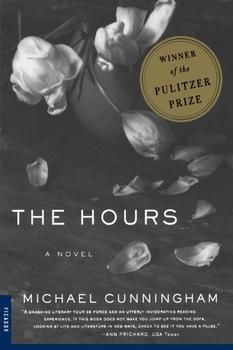Summary | Excerpt | Reading Guide | Reviews | Readalikes | Genres & Themes | Author Bio

Critics' Opinion:
Readers' Opinion:
First Published:
Nov 1998, 230 pages
Paperback:
Jan 2000, 230 pages
I feel certain that I am going mad again:
I feel we can't go through another of these terrible times.
And I shan't recover this time.
I begin to hear voices, and can't concentrate.
So I am doing what seems the best thing to do.
You have given me the greatest possible happiness.
You have been in every way all that anyone could be.
I don't think two people could have been happier till
this terrible disease came.
I can't fight it any longer, I know that I am spoiling your life, that without me you could work. And you will I know.
You see I can't even write this properly. I can't read.
What I want to say is that I owe all the happiness of my life to you.
You have been entirely patient with me & incredibly good.
I want to say that--everybody knows it. If anybody could have saved me it would have been you.
Everything has gone from me but the certainty of your goodness.
I can't go on spoiling your life any longer.
I don't think two people could have been happier than we have been.
V.
Leonard races from the room, runs downstairs. He says to the maid, "I think something has happened to Mrs. Woolf. I think she may have tried to kill herself. Which way did she go? Did you see her leave the house?"
The maid, panicked, begins to cry. Leonard rushes out and goes to the river, past the church and the sheep, past the osier bed. At the riverbank he finds no one but a man in a red jacket, fishing.
She is borne quickly along by the current. She appears to be flying, a fantastic figure, arms outstretched, hair streaming, the tail of the fur coat billowing behind. She floats, heavily, through shafts of brown, granular light. She does not travel far. Her feet (the shoes are gone) strike the bottom occasionally, and when they do they summon up a sluggish cloud of muck, filled with the black silhouettes of leaf skeletons, that stands all but stationary in the water after she has passed along out of sight. Stripes of green-black weed catch in her hair and the fur of her coat, and for a while her eyes are blindfolded by a thick swatch of weed, which finally loosens itself and floats, twisting and untwisting and twisting again.
She comes to rest, eventually, against one of the pilings of the bridge at Southease. The current presses her, worries her, but she is firmly positioned at the base of the squat, square column, with her back to the river and her face against the stone. She curls there with one arm folded against her chest and the other afloat over the rise of her hip. Some distance above her is the bright, rippled surface. The sky reflects unsteadily there, white and heavy with clouds, traversed by the black cutout shapes of rooks. Cars and trucks rumble over the bridge. A small boy, no older than three, crossing the bridge with his mother, stops at the rail, crouches, and pushes the stick he's been carrying between the slats of the railing so it will fall into the water. His mother urges him along but he insists on staying awhile, watching the stick as the current takes it.
Here they are, on a day early in the Second World War: the boy and his mother on the bridge, the stick floating over the water's surface, and Virginia's body at the river's bottom, as if she is dreaming of the surface, the stick, the boy and his mother, the sky and the rooks. An olive-drab truck rolls across the bridge, loaded with soldiers in uniform, who wave to the boy who has just thrown the stick. He waves back. He demands that his mother pick him up so he can see the soldiers better; so he will be more visible to them. All this enters the bridge, resounds through its wood and stone, and enters Virginia's body. Her face, pressed sideways to the piling, absorbs it all: the truck and the soldiers, the mother and the child.
Copyright © 1998 Michael Cunningham. Published by Farrar Straus & Giroux
Excerpted from The Hours by Michael Cunningham. Copyright © 1998 by Michael Cunningham. Excerpted by permission of Farrar, Straus & Giroux. All rights reserved. No part of this excerpt may be reproduced or reprinted without permission in writing from the publisher.





The House on Biscayne Bay
by Chanel Cleeton
As death stalks a gothic mansion in Miami, the lives of two women intertwine as the past and present collide.

The Flower Sisters
by Michelle Collins Anderson
From the new Fannie Flagg of the Ozarks, a richly-woven story of family, forgiveness, and reinvention.

The Funeral Cryer by Wenyan Lu
Debut novelist Wenyan Lu brings us this witty yet profound story about one woman's midlife reawakening in contemporary rural China.
Your guide toexceptional books
BookBrowse seeks out and recommends the best in contemporary fiction and nonfiction—books that not only engage and entertain but also deepen our understanding of ourselves and the world around us.